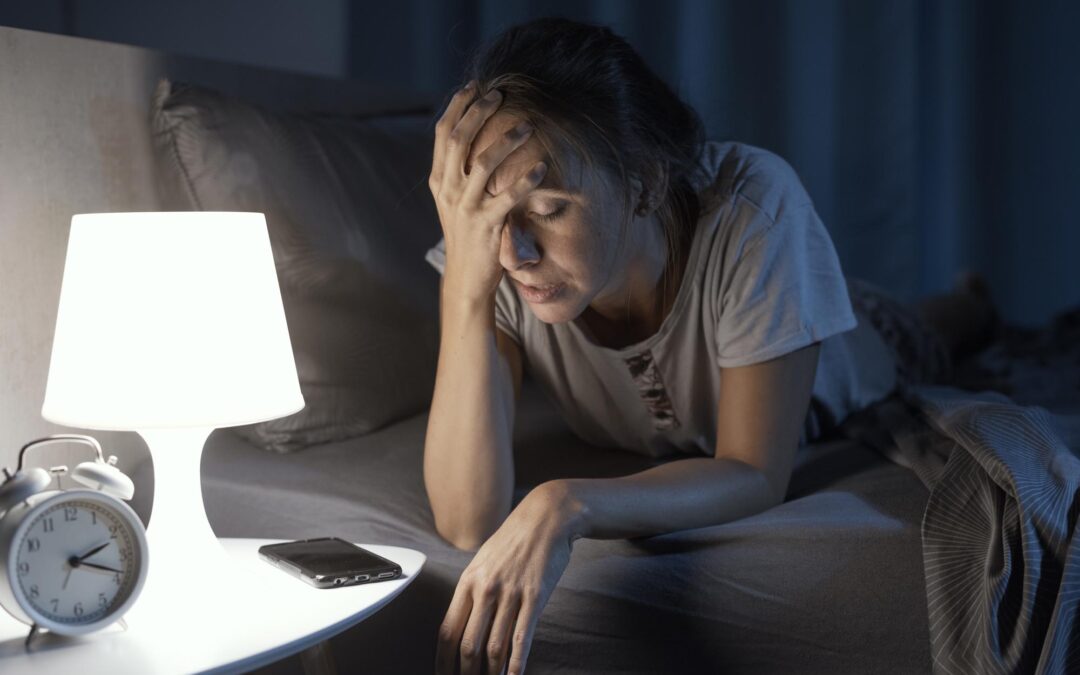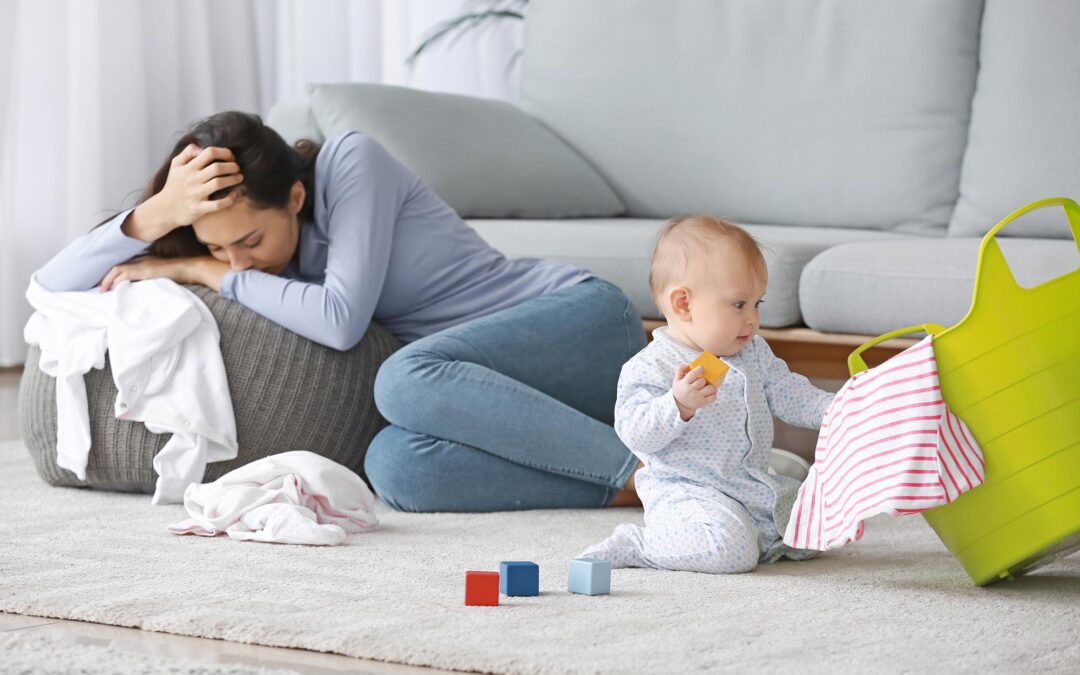All people experience some form of loss at one or more points in their lives. Such loss can come in many forms. For example, a person can experience the loss of a loved one due to death or due to simply ending a relationship with that person. Some other forms of loss that many people experience in life include the loss of a job, the loss of a pet, or even the loss of an idealized dream.
What is Grief?
When a person is coping with a loss, they are said to be grieving. While many people may think they know what grief is supposed to look like due to the well-known “5 Stages of Grief” model, most people don’t understand the complex nature of grief. Some common questions that people have about grief include: how long does grief last? What is the difference between grief and depression?
How Long Does Grief Last?
There is no set amount of time that grief is supposed to last. Typically, though, people who grieve in a healthy manner do so for anywhere from six months to two years. During that period of grieving time, many people assume that one goes through the “5 Stages of Grief.”
What Are the 5 Stages of Grief?

The five stages of grief models the different emotions that one goes through while grieving. Swiss psychiatrist Kubler-Ross introduced the five stages of grief model to the world in her book, On Death and Dying, in 1969.
Within her book, Kubler-Ross interviewed over 200 people who were terminally ill and grieving the imminent loss of their own lives. After conducting these interviews, Kubler-Ross established that most people who grieve do so in five different stages. These stages include denial, anger, bargaining, depression, and acceptance.
What Are the 7 Stages of Grief?
As well-known as the five stages of grief model is, there is a more accurate model of grief out there. This model is the seven stages of grief model. The seven stages of grief include shock and denial, pain and guilt, anger and bargaining, depression, the upward turn, reconstruction, and acceptance and hope.
The seven stages of the grief model are slightly more accurate than the five stages of the grief model. Still, the seven stages of the grief model are not the end-all be-all when it comes to how one experiences grief. It’s more of a basic guideline for how one is likely to experience grief.
In fact, many people who suffer from grief will only experience some of the seven stages of grief. Others may experience none of the stages of grief.
Factors That Influence the Grieving Process
There are many things that can influence a person’s grieving process. Some of the more common factors that influence the grieving process include the following:
Stage of Life in Which Death or Loss Occurred
For many people, it’s harder to accept the loss of a loved one through death when their loved one lost their life at a young age. This is because losing a loved one at a young age often makes people feel like their loved one was cheated out on life.
It’s also often difficult for people who are young themselves and in the formative years of their lives to lose their loved ones. This is because such people often feel that they got cheated out of sharing some of their most pivotal life moments with their loved ones.
Such people also often feel that they didn’t get to benefit from the love and wisdom that their lost loved ones could have imparted to them. This is especially true for people who lose their parents while they are young and in the formative years of their lives.
Nature of Death or Loss
It’s often harder to lose someone to death unexpectedly or in a tragic manner than it is to do so in an expected and peaceful manner. For example, it may be more difficult for someone to grieve the loss of a young parent who died in a tragic car accident one day than it is to grieve the loss of a parent who was very up in age and had been ill for quite some time.
Type of Loss
Some relationships are more significant in people’s lives than others. As a result, losing some people may cause a person to experience more intense levels of grief than losing other people would. For example, it’s likely harder for someone to grieve the loss of an immediate family member or best friend than it is to grieve the loss of a distant relative or acquaintance.
Significance of Loss
Even people’s pets, jobs, and life experiences vary in how important of a role they play in their lives. For example, losing a dream job that one worked all of their life to get may cause a person more grief than losing a part-time job that they didn’t value much.
Circumstances of Life at the Time One Experienced a Loss
If a person experiences a loss such as a death of a loved one or pet, the loss of a job, or the end of a romantic relationship or friendship at a time in their life when they were already struggling financially, physically, or emotionally, it can increase the intensity of the grief that one feels. It can also increase the length of time that a person experiences grief.
Multiple Losses
When a person experiences multiple life losses, such as the loss of a job and the end of a romantic relationship within close proximity to one another, it can increase the intensity of the grief level and the length of time that they suffer from grief.
Types of Grief Experienced
There are different types of grief that people can develop when experiencing a loss. For example, people who know that their loss is going to be coming soon may experience anticipatory grief. Other people who feel that they must hide their grief due to it not seeming valid to the public may experience disenfranchised grief. Because the types of grief that people experience may differ from one another, so may the grieving processes that people go through.
What Are the Different Types of Grief?
As mentioned earlier in this article, there are different types of grief. Some of the common types of grief include the following:
Anticipatory Grief
Once again, anticipatory grief is grief that occurs before the actual loss happens. Anticipatory grief often occurs because people learn ahead of time what their loss is going to be, whether that be a loss of a job, the loss of a loved one, or something else. Anticipatory grief often causes a person to suffer from anxiety on top of their grief.
Disenfranchised Grief
Disenfranchised grief occurs when people feel that they must hide their grief due to the public thinking that their grief isn’t valid. Such grief can prolong the grieving process while simultaneously making the person who is grieving feel more alone.
Complicated Grief
Complicated grief is more intensive and long-lasting than most other forms of grief. How long does grief last when it’s complicated? Possibly, as long as the person does not seek help and actively try to make a change. Because of how intense and long-lasting complicated grief can get, medical professionals suggest that those who experience complicated grief seek therapy or other forms of mental health treatment.
Abbreviated Grief
How long does grief last when it’s abbreviated? Well, unlike complicated grief, abbreviated grief actually comes and goes quickly. Oftentimes, abbreviated grief occurs after anticipatory grief. This is because people who experience anticipatory grief have already prepared themselves for their loss.
Delayed Grief
Delayed grief is grief that doesn’t occur until much after a loss. Delayed grief occurs because people often initially distract themselves from their emotions by keeping themselves busy and not talking about what is causing them grief. This, in turn, causes some individuals to have a sudden outpouring of grief much later on.
Inhibited Grief
Inhibited grief is grief that shows up as physical symptoms due to the person with the grief not expressing his or her emotions.
Cumulative Grief
Cumulative grief is an intensified form of grief that occurs because a person experienced multiple different forms of grief within close proximity to one another. For example, a person who recently lost a parent and lost his job may be experiencing cumulative grief.
Collective Grief
Collective grief is grief that affects everyone. This is because national and international matters such as wars, natural disasters, school shootings, and the pandemic cause everyone to feel some grief.
Physical Symptoms of Grief
Grieving loss causes stress in a person’s life. As a result, the human body sometimes reacts by causing people to suffer physically from things like upset stomach, diarrhea, or constipation.
When a person feels stress due to grief, it can also trigger his or her nervous system. This can cause the nervous system to overwork itself. This, in turn, can cause a person to experience digestive and sleep issues. The stress of grief can even cause a person’s immune system to weaken.
Other physical symptoms of grief include:
- Fatigue
- Headaches
- Nausea
- Heart palpitations
- Joint pain
- Reduced or Increased appetite
Emotional Symptoms of Grief
Grief can also cause a person to experience many different emotions. For example, grief can cause a person to experience the following:
- Sadness
- Guilt
- Apathy
- Anger
- Regret
- Relief
- Resentment
Symptoms of Unhealthy Grief
Unhealthy grief, or complicated grief, causes people to experience grief for an unnaturally long time. Complicated grief often develops because a person has a complicated relationship with the person whom they lost. If a person suffers from complicated grief for more than a couple years after a loss, they should seek out therapy and possibly medication to help.
Grief vs. Depression
 While grief may appear the same as depression, there is a difference between the two. According to the DSM-5, depression is characterized by persistent sadness and hopelessness along with irritability, feelings of emptiness, and cognitive and physical changes. Examples of such cognitive and physical changes include insomnia, impaired memory, and the person no longer taking care of their physical appearance.
While grief may appear the same as depression, there is a difference between the two. According to the DSM-5, depression is characterized by persistent sadness and hopelessness along with irritability, feelings of emptiness, and cognitive and physical changes. Examples of such cognitive and physical changes include insomnia, impaired memory, and the person no longer taking care of their physical appearance.
For a person to be clinically diagnosed with depression, the cognitive and physical symptoms that it causes must interfere with his or her ability to function normally at school, work, and in society. While grief can also cause a person to experience feelings of sadness, hopelessness, irritability, and cognitive and physical changes, it’s primarily characterized by experiencing loss.
How to Best Cope with Grief
To best cope with grief, stick to a routine and continue to take care of oneself. One can do this by sleeping and exercising regularly. Going to therapy and spending time with people you love will also help you cope with grief.
How to Support Loved Ones Who Are Grieving
To support loved ones who are grieving, do the following:
- Be present
- Show that you are open to talking about the situation
- Listen
- Don’t’ compare grief your grief to your loved one’s grief
- Don’t bring up your grief when focusing on helping them with their grief
- Don’t be dismissive of their grief by trying to put a positive spin on everything they say
- Don’t minimize the other person’s grief
Treat Grief at Lightwork Therapy and Recovery
Lightwork Therapy and Recovery is a women’s only mental health treatment center. Here at Lightwork Therapy and Recovery, we offer individual and group therapy treatment for everything from anxiety to depression to PTSD and the grief that often also comes with these mental illnesses.
As an outpatient treatment facility, the levels of care that we offer our patients include Mental Health Day Treatment programs and standard Outpatient Programs. Our tailor-made Mental Health Day Treatment programs are for women who need a structured, therapeutic environment without the confines of a 24/7 inpatient facility.
Our standard Outpatient Programs are more flexible. This is because our Outpatient Programs are for women who need consistent therapeutic support but with a more relaxed frequency.
To learn more about Lightwork Therapy and Recovery and the services that we offer, feel free to contact us. We would love to hear from you!





